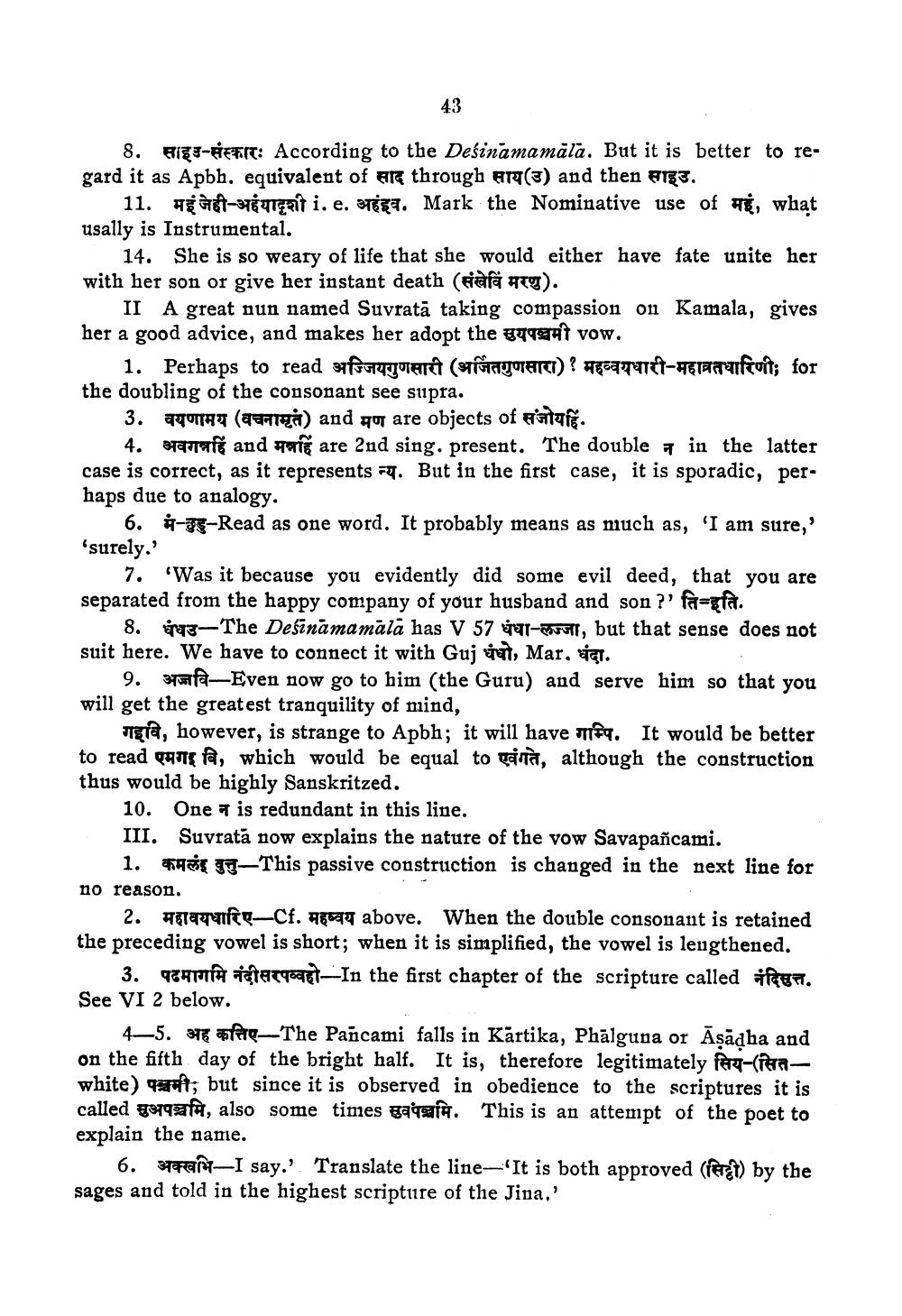________________
43
8. Higs-FIT: According to the Dešinamamala. But it is better to regard it as Apbh. equivalent of साद through साय(उ) and then साइउ.
11. HE WA-petreat i. e. Tega. Mark the Nominative use of , what usally is Instrumental.
14. She is so weary of life that she would either have fate unite her with her son or give her instant death (Hafa hry).
II A great nun named Suvratā taking compassion on Kamala, gives her a good advice, and makes her adopt the great vow.
1. Perhaps to read affreuer (SVAY TATTI)? Hayat-Herauifcunt; for the doubling of the consonant see supra.
3. TOT (agatago and go are objects of stuff.
4. Baraft and rig are 2nd sing. present. The double in the latter case is correct, as it represents -4. But in the first case, it is sporadic, perhaps due to analogy.
6. Å-35-Read as one word. It probably means as much as, 'I am sure,' 'surely.'
7. "Was it because you evidently did some evil deed, that you are separated from the happy company of your husband and son ?' fa=fa.
8. 3-The Deśīnāmamālā has V 57 OT-FT, but that sense does not suit here. We have to connect it with Guj , Mar, jar.
9. -Even now go to him (the Guru) and serve him so that you will get the greatest tranquility of mind,
eta, however, is strange to Apbh; it will have fq. It would be better to read his ê, which would be equal to gaira, although the construction thus would be highly Sanskritzed.
10. One is redundant in this line. III. Suvratā now explains the nature of the vow Savapañcami.
1. FAT -This passive construction is changed in the next line for no reason.
2. Ta g -Cf. Agay above. When the double consonant is retained the preceding vowel is short; when it is simplified, the vowel is lengthened.
3. पढमागमि नंदीसरपव्वहो-In the first chapter of the scripture called नंदित्त. See VI 2 below.
4-5. 378 afro-The Pancami falls in Kartika, Phālguna or Asādha and on the fifth day of the bright half. It is, therefore legitimately ffy-hawhite) ft; but since it is observed in obedience to the scriptures it is called grafa, also some times garaia. This is an attempt of the poet to explain the name.
6. Pen-I say.'. Translate the line-It is both approved (it) by the sages and told in the highest scripture of the Jina.'




